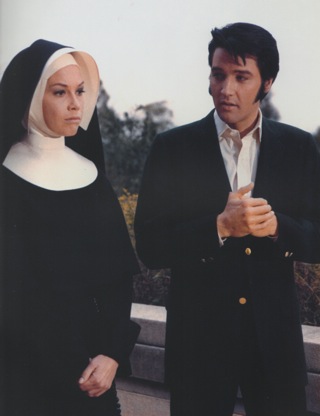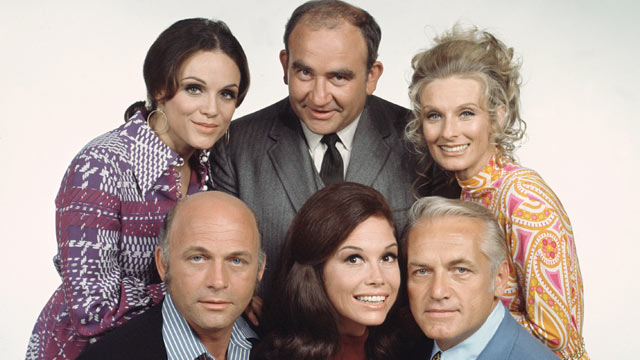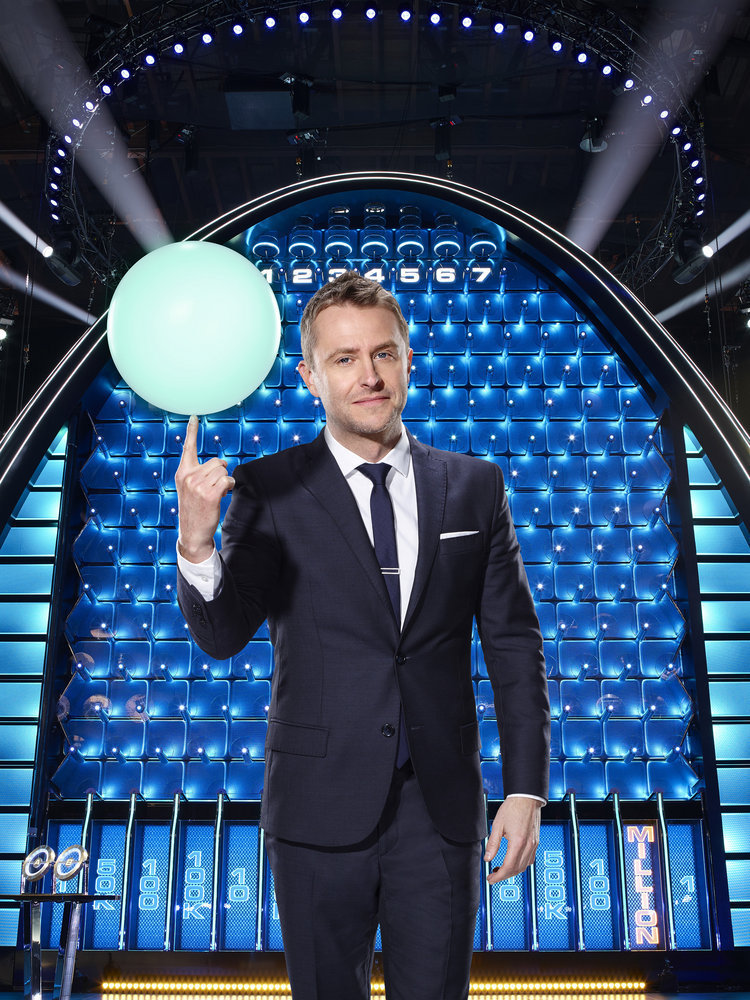I loved
Mary Tyler Moore.
I'm old enough to remember when
The Mary Tyler Moore show was on the air. I watched it from the start. In fact, I remember checking out the pilot in while my parents were playing bridge in the next room. They wanted me to turn it down (it was the only TV in the house, so I couldn't watch anywhere else).
At the time, CBS was tossing its rural shows off the air, and turning towards a smarter type of comedy.
The Mary Tyler Moore Show was the first of that group and the best. It almost didn't make it. Moore, a hot star after her work a few years before on
The Dick Van Dyke Show, had tried Broadway (a musical version of
Breakfast At Tiffany's that closed before it opened) and movies (
Thoroughly Modern Millie, What's So Bad About Feeling Good?--which I saw at the cinema--and
A Change Of Habit--where she played a nun opposite Elvis as a doctor), but had not quite made it.
She did a special with her old TV husband entitled
Dick Van Dyke And The Other Woman, and CBS was impressed enough to offer her a show. She and husband Grant Tinker started MTM Productions and hired James L. Brooks and Allan Burns to create the show--and stuck by them even as CBS had one problem after another. (The writers wanted Mary to be divorced, but the suits said everyone would think she left Dick Van Dyke.) The first run-through in front of an audience died, but after a few small changes, it played beautifully.
It took a while for the show to pick up viewers, and critics, but it became a hit that settled into a long run, from 1970 to 1977, winning more Emmys than any program up to that time. Mary herself, who'd won two Emmys on
DVD, won four for
MTM (and would receive yet another in the 1990s).
During its run, CBS developed the Saturday night lineup that included
MTM plus
All In The Family, M*A*S*H, The Bob Newhart Show and
The Carol Burnett Show. TV has never topped that.
Mary went off the air with grace, knowing enough to quit just before things got stale. The show started a vein of smart comedy that's still with us--either written by the same writers (for instance, James L. Brooks went on to do
Taxi and
The Simpsons) or inspired by that kind of writing. Shows that had relatable characters, and situations from real life, even as they managed to be funnier than anything else on the air.
Around then, I also discovered
The Dick Van Dyke Show in reruns, which was the greatest sitcom in its time. In fact, you could argue Moore starred in the two greatest comedies ever on TV.
Producer Carl Reiner was having trouble casting Dick's wife, but once he found Mary, he knew she was it. She was young, and hadn't yet shown her comedy chops, but had such chemistry with Van Dyke (though he thought at first she was too young for him), and such style, and was so sexy, that the show expanded her role. Originally it might have focused more on his workplace adventures, but with Mary around, his home life became central.
The show also inspired countless young men to become comedy writers--imagine cracking jokes all day with your pals and getting paid for it, and then coming home to a beautiful home in the suburbs to be with Mary.
After
The Mary Tyler Moore Show, she starred in other shows which weren't bad, but never caught fire. (It's hard to match the greatest show of all time.) She also did movies, most notably
Ordinary People, for which she got an Oscar nomination. The story is director Robert Redford saw her walking on the beach by herself, and felt a solitude and even sadness that would work well for the rather closed-off character she'd be playing.
She also was pretty good years later playing Ben Stiller's Jewish mother in
Flirting With Disaster. Director David O. Russell had hoped to get her and Dick Van Dyke for different roles, but when that fell through he cast Moore against type and she knocked it out of the park.
She also did some Broadway shows, fought for causes, saw tragedy in her life, and so on--sorry if I don't go into it. It's just that I know what I think of when I think of her--the amazing work she did on TV, and the wonderful mix of humor and warmth (a word that usually makes me run, but not in her case) that she embodied. That's what will live on.
The funny thing is, as much as I loved the show from the start, it was in reruns that I came to cherish it. It was even funnier than I remembered (maybe because I was just a kid the first time through), and the characters were indelible.
After college I moved to New Jersey, and there was a local station that showed
Mary each weeknight from 2 to 3 in the morning. I always caught it--they showed it in order, and if you missed it there were 168 episodes to cycle through. It was a weird feeling when they showed the finale, with an experienced Mary saying goodbye to her friends at WJM, and the next day she returned, fresh-faced, moving into a new place in a new city.
Years later I visited Minneapolis, and my friends showed me the house that was used as her apartment's exterior. (I hear the people who lived there got tired of tourists and put political signs in their window like "U.S. out of El Salvador" so the TV show wouldn't shoot anything new.) They also showed me the spot where she tossed her beret in the opening credits, which now has a statue.
The show, by the way, made a statement, but unlike a Norman Lear production didn't have characters screaming their beliefs at each other. Mary and those around her just lived their lives--making friends, finding jobs, going on dates, etc. It was about people, not politics. Mary was unmarried, and in the pilot, leaves her boyfriend, a doctor. This didn't happen on TV. Single women in their 30s were rare, and were usually chasing after a man, or had a steady. (
MTM tried a steady for a few episodes late in its run. He was played by Ted Bessell, who had been the steady on
MTM's precursor
That Girl. It didn't work.)
And Mary, demure Mary, had sex. They didn't make a big deal of it, but she was constantly going on dates (often disasters) and was on the Pill. She also learned to stand up for herself--when she discovered the man who'd held her job earned more, she insisted on a raise. I almost don't want to bring all this up, because the show was, above all, delightful entertainment, and never hectoring. The show may have been groundbreaking, socially speaking, but it doesn't even need it.
A lot of woman have said the show inspired them. (Among them,
Oprah.) It showed you could have friends and live a fulfilling life without necessarily doing everything the conventional way. Though I guess that message applies to all people.
There's a lot more I could say about Mary, and her work on TV, but I already have blogged about that a fair amount. So if you want more (or Moore), try
here and
here and
here and
here and
here and
here and
here and
here and
here and
here and
here and
here and
here and
here and
here and
here and
here and
here and
here.















